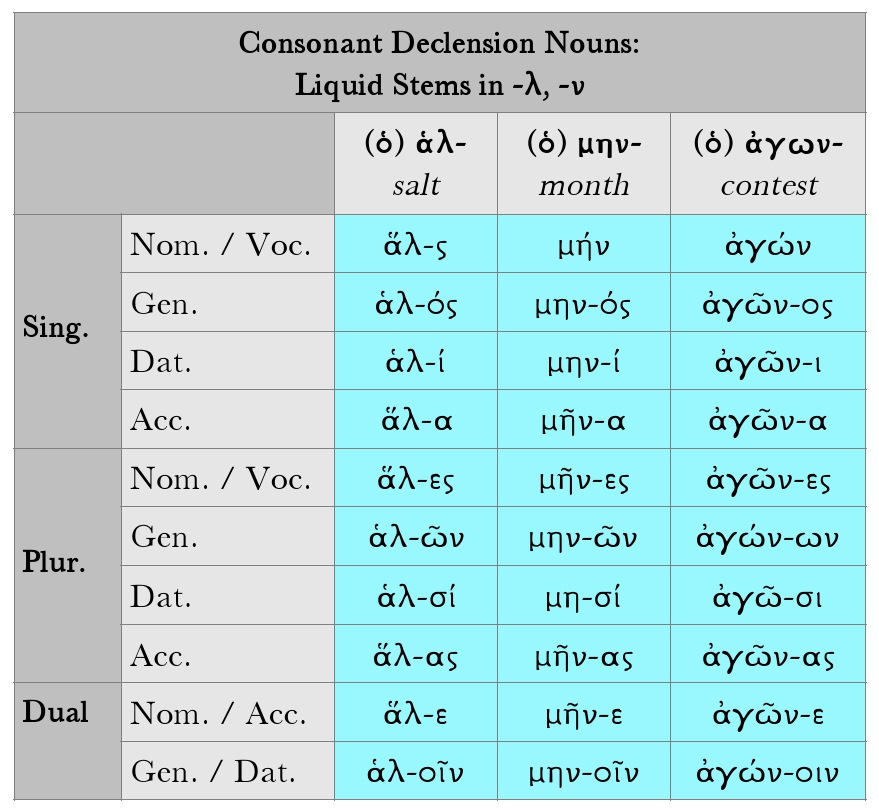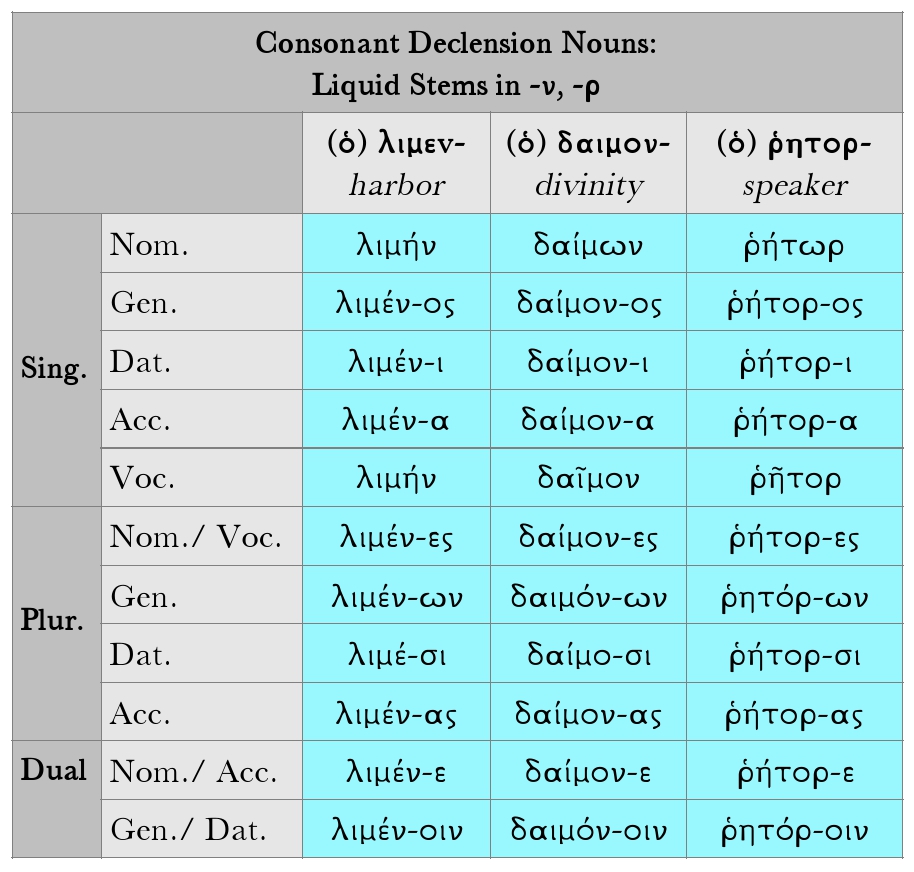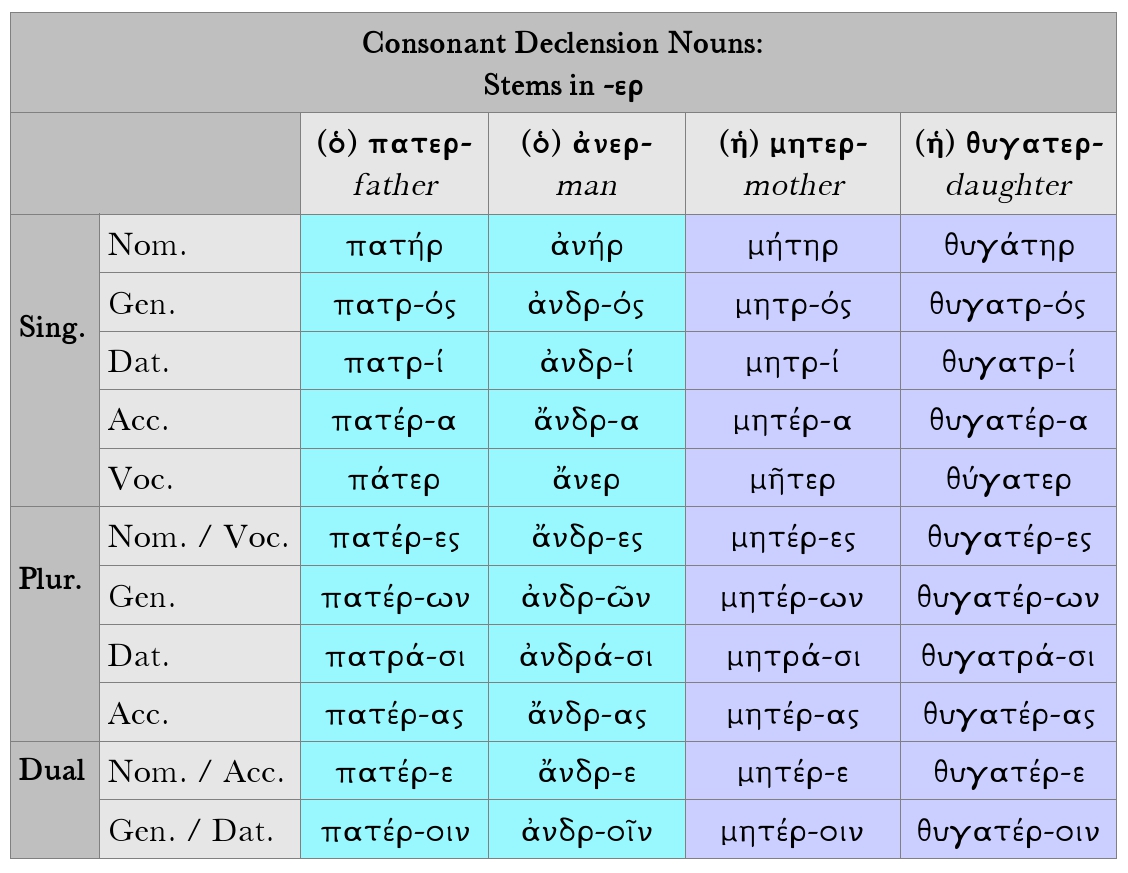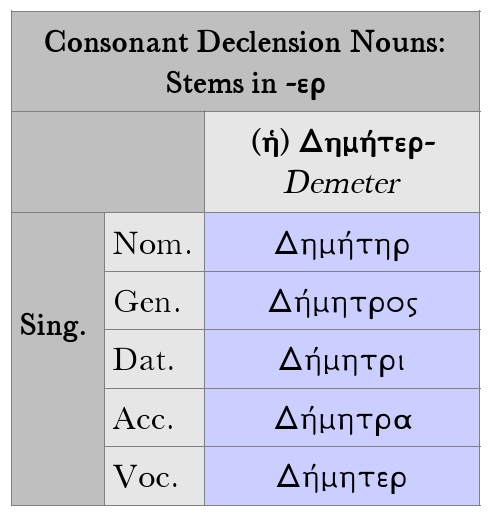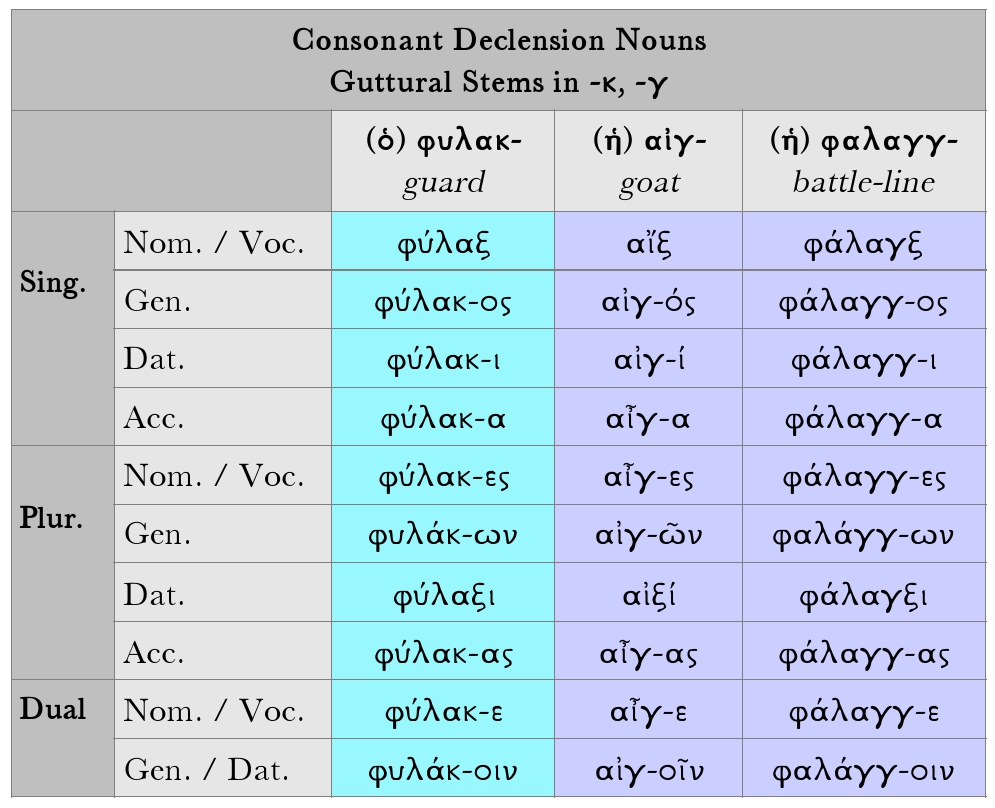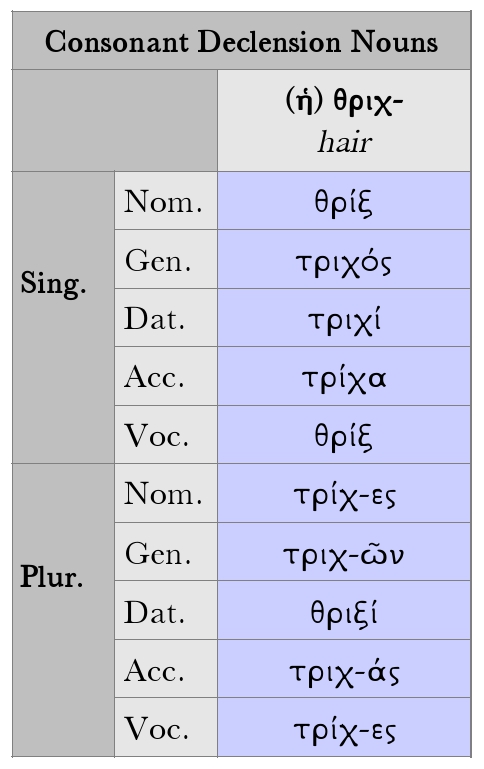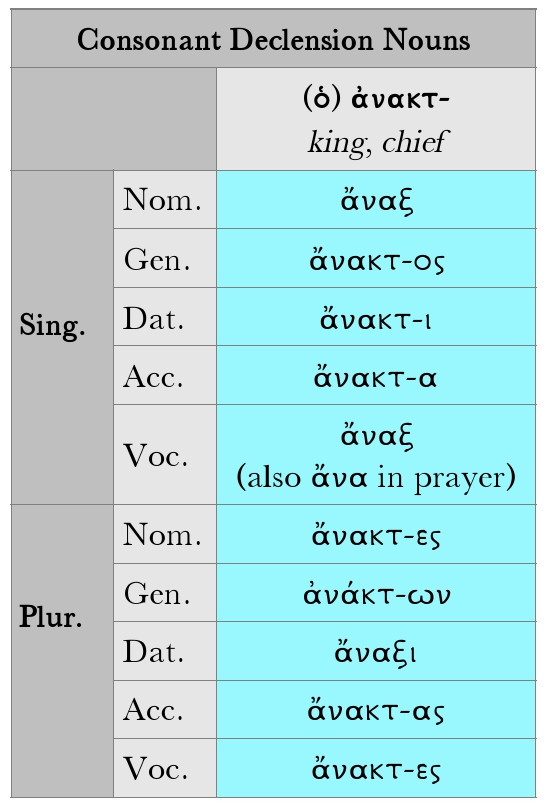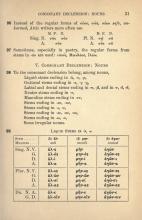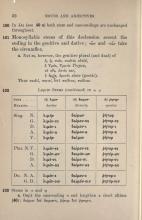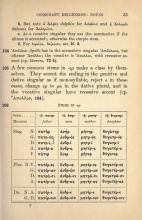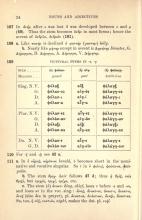98. Tο the consonant declension belong, among nouns,
Liquid stems ending in -λ, -ν, -ρ;
Guttural stems ending in -κ, -γ, -χ;
Labial and dental stems ending in -π, -β, and in -τ, -δ, -θ;
Neuter stems ending in -τ;
Masculine stems ending in -ντ;
Stems ending in -εσ, -ασ;
Stems ending in -ι, -υ;
Stems ending in -ευ, -αυ, -ου;
Stems ending in -ω, -ο;
Some irregular nouns.
100. In ἅλς (see § 40.a) both stem and case-endings are unchanged throughout.
101. Monosyllabic stems of this declension accent the ending in the genitive and dative; -ῶν and -οῖν take the circumflex.
a. Not so, however, the genitive plural (and dual) of
ὁ / ἡ παῖς, παιδ-ός child
ὁ Τρώς, Τρω-ός Trojan
τὸ οὖς, ὠτ-ός ear
ὁ δμώς, δμω-ός slave (poetic)
Thus παιδ-ί, παι-σί, but παίδ-ων, παίδ-οιν.
a. Οmit the case-ending -ς and lengthen a short ultima (§ 40).
δαίμων for δαιμον-ς
ῥήτωρ for ῥητορ-ς
b. But note ὁ δελφῑ́ς (dolphin) for δελφῑν-ς and ἡ Σαλαμῑ́ς (Salamis) for Σαλαμῑν-ς.
c. As a vocative singular they use the nominative if the ultima is accented; otherwise the simple stem.
d. For λιμέ-σι, δαίμο-σι, see § 51.d.
104. Ἀπόλλων (Apollo) has in the accusative singular Ἀπόλλωνα, but oftener Ἀπόλλω; the vocative is Ἄπολλον, with recessive accent (cp. δέσποτα, § 72.d).
105. A few common stems in -ερ make a class by themselves. They accent the ending in the genitive and dative singular as if monosyllabic, reject -ε- in those cases, change -ερ to -ρα in the dative plural, and in the vocative singular have recessive accent (cp. Ἄπολλον, § 104, above).
107. In ἀνήρ after -ε- was lost -δ- was developed between -ν- and -ρ- (§ 49). Thus the stem becomes ἀνδρ- in most forms; hence the accent of ἀνδρῶν, ἀνδροῖν (§ 101, above).
108. a. Like πατήρ is declined ὁ γαστήρ (γαστερ-, belly).
b. Nearly like μήτηρ except in accent is Δημήτηρ (Demeter)
110. For -ξ and -ξι see § 45.a.
111. a. In ὁ κῆρυξ, κήρῡκ-ος (herald), -ῡ- becomes short in the nominative and vocative singular. So -ῑ- in ὁ φοῖνιξ, φοίνῑκ-ος (date-palm).
b.The stem θριχ- (hair) follows § 47.d.
c. The stem (ὁ) ἀνακτ- (king, chief) loses -τ- before -ς and -σι, and loses -κτ- in the vocative singular.
So, too, ἡ νύξ, νυκτ-ός (night), makes the dative plural νυξί.

